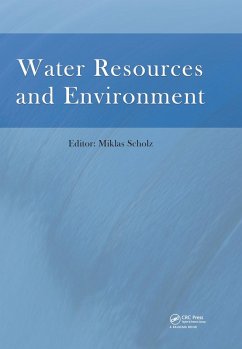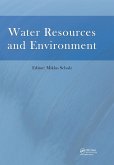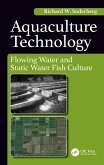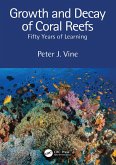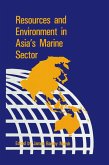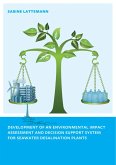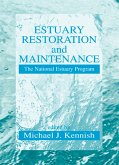Water Resources and Environment (eBook, ePUB)
Proceedings of the 2015 International Conference on Water Resources and Environment (Beijing, 25-28 July 2015)
Redaktion: Scholz, Miklas
51,95 €
51,95 €
inkl. MwSt.
Sofort per Download lieferbar

26 °P sammeln
51,95 €
Als Download kaufen

51,95 €
inkl. MwSt.
Sofort per Download lieferbar

26 °P sammeln
Jetzt verschenken
Alle Infos zum eBook verschenken
51,95 €
inkl. MwSt.
Sofort per Download lieferbar
Alle Infos zum eBook verschenken

26 °P sammeln
Water Resources and Environment (eBook, ePUB)
Proceedings of the 2015 International Conference on Water Resources and Environment (Beijing, 25-28 July 2015)
Redaktion: Scholz, Miklas
- Format: ePub
- Merkliste
- Auf die Merkliste
- Bewerten Bewerten
- Teilen
- Produkt teilen
- Produkterinnerung
- Produkterinnerung

Bitte loggen Sie sich zunächst in Ihr Kundenkonto ein oder registrieren Sie sich bei
bücher.de, um das eBook-Abo tolino select nutzen zu können.
Hier können Sie sich einloggen
Hier können Sie sich einloggen
Sie sind bereits eingeloggt. Klicken Sie auf 2. tolino select Abo, um fortzufahren.

Bitte loggen Sie sich zunächst in Ihr Kundenkonto ein oder registrieren Sie sich bei bücher.de, um das eBook-Abo tolino select nutzen zu können.
The 2015 International Conference on Water Resource and Environment (WRE2015) aims to provide a platform where scholars from different countries can exchange ideas, opinions and views. This book is divided into four main themes:1. Hydrology and water resources;2. Water pollution; 3. Water treatment methods, and4. Freshwater ecosystems. Exploring to
- Geräte: eReader
- mit Kopierschutz
- eBook Hilfe
Andere Kunden interessierten sich auch für
![Water Resources and Environment (eBook, PDF) Water Resources and Environment (eBook, PDF)]() Water Resources and Environment (eBook, PDF)51,95 €
Water Resources and Environment (eBook, PDF)51,95 €![Water Pollution and Fish Physiology (eBook, ePUB) Water Pollution and Fish Physiology (eBook, ePUB)]() Alan G. HeathWater Pollution and Fish Physiology (eBook, ePUB)61,95 €
Alan G. HeathWater Pollution and Fish Physiology (eBook, ePUB)61,95 €![Aquaculture Technology (eBook, ePUB) Aquaculture Technology (eBook, ePUB)]() Richard Soderberg W.Aquaculture Technology (eBook, ePUB)41,95 €
Richard Soderberg W.Aquaculture Technology (eBook, ePUB)41,95 €![Growth and Decay of Coral Reefs (eBook, ePUB) Growth and Decay of Coral Reefs (eBook, ePUB)]() Peter J. VineGrowth and Decay of Coral Reefs (eBook, ePUB)52,95 €
Peter J. VineGrowth and Decay of Coral Reefs (eBook, ePUB)52,95 €![Resources & Environment in Asia's Marine Sector (eBook, ePUB) Resources & Environment in Asia's Marine Sector (eBook, ePUB)]() James B. MarshResources & Environment in Asia's Marine Sector (eBook, ePUB)265,95 €
James B. MarshResources & Environment in Asia's Marine Sector (eBook, ePUB)265,95 €![Development of an Environmental Impact Assessment and Decision Support System for Seawater Desalination Plants (eBook, ePUB) Development of an Environmental Impact Assessment and Decision Support System for Seawater Desalination Plants (eBook, ePUB)]() Sabine LattemanDevelopment of an Environmental Impact Assessment and Decision Support System for Seawater Desalination Plants (eBook, ePUB)128,95 €
Sabine LattemanDevelopment of an Environmental Impact Assessment and Decision Support System for Seawater Desalination Plants (eBook, ePUB)128,95 €![Estuary Restoration and Maintenance (eBook, ePUB) Estuary Restoration and Maintenance (eBook, ePUB)]() Michael J. KennishEstuary Restoration and Maintenance (eBook, ePUB)63,95 €
Michael J. KennishEstuary Restoration and Maintenance (eBook, ePUB)63,95 €-
-
-
The 2015 International Conference on Water Resource and Environment (WRE2015) aims to provide a platform where scholars from different countries can exchange ideas, opinions and views. This book is divided into four main themes:1. Hydrology and water resources;2. Water pollution; 3. Water treatment methods, and4. Freshwater ecosystems. Exploring to
Dieser Download kann aus rechtlichen Gründen nur mit Rechnungsadresse in A, B, BG, CY, CZ, D, DK, EW, E, FIN, F, GR, HR, H, IRL, I, LT, L, LR, M, NL, PL, P, R, S, SLO, SK ausgeliefert werden.
Produktdetails
- Produktdetails
- Verlag: Taylor & Francis eBooks
- Seitenzahl: 496
- Erscheinungstermin: 17. November 2015
- Englisch
- ISBN-13: 9781317289685
- Artikelnr.: 73300783
- Verlag: Taylor & Francis eBooks
- Seitenzahl: 496
- Erscheinungstermin: 17. November 2015
- Englisch
- ISBN-13: 9781317289685
- Artikelnr.: 73300783
- Herstellerkennzeichnung Die Herstellerinformationen sind derzeit nicht verfügbar.
Miklas Scholz is a professor in Civil Engineering at the University of Salford in the UK. His main research areas include: treatment wetlands, integrated constructed wetlands (ICW), sustainable flood retention basins (SFRB), permeable pavement systems, decision support systems and ponds and capillary suction time. His research has led to the incorporation of findings into national and international guidelines on wetland and sustainable drainage systems. The greatest impact has been made in the area of ICW in Ireland, Northern Ireland, Scotland and England. Miklas Scholz contributed to the design guidelines of wetland systems as a research consultant. The guidelines assist designers and managers in all aspects of ICW planning, design, construction, maintenance and management. Moreover, specific guidelines were written for ICW used by farmers to treat farm yard runoff in Scotland and Northern Ireland, and Ireland. These guidelines are specifically mentioned in national legislation.
Preface; Distribution and potential ecological risk of Cu, Cd, Pb and Zn in
surface water and sediment from Tianjin coastal areas of Bohai Bay, China;
Preliminary study on UVC photocatalysis on cysts of red tide algae;
Groundwater circulation by hydrochemistry and isotope method; Hydrochemical
characteristics of pressurized brine in Mahai potash area in Qinghai
province; Evaluation and variation trend analysis of eutrophication in
Dongping Lake, China; Study on the features of backward-facing step flow;
Research on treatment of zinc containing wastewater with fly ash zeolite;
The mechanical characteristics of Yellow River crossing tunnel composite
linings in the south-north water diversion project; The study of irrigation
surface and ground water conjunctive use based on coupled model;
Correlation between species distribution and leaching properties of Pb in
contaminated sediment; Water pressure test in the design of the tunnel in
Yellow River crossing project of the mid-route of South-to-north water
transfer project; Study of the groundwater depth temporal and spatial
variation in the urban area of Xi'an city, China; Global water business:
Focusing on the business process model of Veolia Water; Impacts of runoff
and tides on offshore water level in south of Chongming Island; Evaluation
of hydrological uncertainty by the GLUE method under the impact of choosing
a cutoff threshold value; Treatment of vehicle-washing wastewater with
three-dimensional fluidized bed electrode method of activated carbon;
Hydraulic model study of pump station for plain reservoir; Evaluation and
analysis of water resources carrying capacity in arid zone-A case of Manas
basin; Equal proportion flood retention strategy for the leading
multireservoir system in upper Yangtze River; Study on the optimum
digestion system for Cadmium, Lead and Thallium in yellow red soil by
microwave digestion; Study on the degradation of dye solution using
Ti/IrO2-RuO2 electrode; Evaluating the effects of lagged ENSO and SAM as
potential predictors for long-term rainfall forecasting; A method for lake
water table and volume estimation using Landsat TM/ETM+ images; Does
pollution overrun anti-pollution?: Pollution efficiency and environmental
management in Bangladesh; Flood disaster risk assessment in the east of
Sichuan, China; Study on successful degree evaluation of river course flood
control planning; Evaluation and ecological risk assessment of estrogenic
contaminant in water of Sansha Bay, China; Two dimensional numerical
simulation study of salinity in Modaomen estuary;
Microwave/ultraviolet-assisted regeneration of granular activated carbon
and the dechlorination of adsorbed chloramphenicol; Pilot study for
upgrading petroleum refinery effluent biological treatment facility and
recovery after ultra-high load shock; Assessment of eco-environment
vulnerability in the Songhuaba watershed; Non-equilibrium sediment
transport simulation in Danjiangkou Reservoir; The heavy metal
distributions and a potential risk assessment of the Three Gorges Reservoir
after the 175-m-impoundment stage; Effect of gravity on flocculation of
cohesive fine sediment in still water; Overburden failure height and
fissure evolution characteristics of deep buried, extra thick coal seam and
fully-mechanized caving mining of China; Prediction of fecal coliform
concentrations from wastewater discharges in the Halifax Harbour; Catalytic
wet peroxide oxidation of coking wastewater with Fe-Al pillared
montmorillonite catalysts; Effect of photocatalysis on the hybrid membrane
system for Humic Acid removal and membrane fouling properties.../Part
Contents
surface water and sediment from Tianjin coastal areas of Bohai Bay, China;
Preliminary study on UVC photocatalysis on cysts of red tide algae;
Groundwater circulation by hydrochemistry and isotope method; Hydrochemical
characteristics of pressurized brine in Mahai potash area in Qinghai
province; Evaluation and variation trend analysis of eutrophication in
Dongping Lake, China; Study on the features of backward-facing step flow;
Research on treatment of zinc containing wastewater with fly ash zeolite;
The mechanical characteristics of Yellow River crossing tunnel composite
linings in the south-north water diversion project; The study of irrigation
surface and ground water conjunctive use based on coupled model;
Correlation between species distribution and leaching properties of Pb in
contaminated sediment; Water pressure test in the design of the tunnel in
Yellow River crossing project of the mid-route of South-to-north water
transfer project; Study of the groundwater depth temporal and spatial
variation in the urban area of Xi'an city, China; Global water business:
Focusing on the business process model of Veolia Water; Impacts of runoff
and tides on offshore water level in south of Chongming Island; Evaluation
of hydrological uncertainty by the GLUE method under the impact of choosing
a cutoff threshold value; Treatment of vehicle-washing wastewater with
three-dimensional fluidized bed electrode method of activated carbon;
Hydraulic model study of pump station for plain reservoir; Evaluation and
analysis of water resources carrying capacity in arid zone-A case of Manas
basin; Equal proportion flood retention strategy for the leading
multireservoir system in upper Yangtze River; Study on the optimum
digestion system for Cadmium, Lead and Thallium in yellow red soil by
microwave digestion; Study on the degradation of dye solution using
Ti/IrO2-RuO2 electrode; Evaluating the effects of lagged ENSO and SAM as
potential predictors for long-term rainfall forecasting; A method for lake
water table and volume estimation using Landsat TM/ETM+ images; Does
pollution overrun anti-pollution?: Pollution efficiency and environmental
management in Bangladesh; Flood disaster risk assessment in the east of
Sichuan, China; Study on successful degree evaluation of river course flood
control planning; Evaluation and ecological risk assessment of estrogenic
contaminant in water of Sansha Bay, China; Two dimensional numerical
simulation study of salinity in Modaomen estuary;
Microwave/ultraviolet-assisted regeneration of granular activated carbon
and the dechlorination of adsorbed chloramphenicol; Pilot study for
upgrading petroleum refinery effluent biological treatment facility and
recovery after ultra-high load shock; Assessment of eco-environment
vulnerability in the Songhuaba watershed; Non-equilibrium sediment
transport simulation in Danjiangkou Reservoir; The heavy metal
distributions and a potential risk assessment of the Three Gorges Reservoir
after the 175-m-impoundment stage; Effect of gravity on flocculation of
cohesive fine sediment in still water; Overburden failure height and
fissure evolution characteristics of deep buried, extra thick coal seam and
fully-mechanized caving mining of China; Prediction of fecal coliform
concentrations from wastewater discharges in the Halifax Harbour; Catalytic
wet peroxide oxidation of coking wastewater with Fe-Al pillared
montmorillonite catalysts; Effect of photocatalysis on the hybrid membrane
system for Humic Acid removal and membrane fouling properties.../Part
Contents
Preface; Distribution and potential ecological risk of Cu, Cd, Pb and Zn in
surface water and sediment from Tianjin coastal areas of Bohai Bay, China;
Preliminary study on UVC photocatalysis on cysts of red tide algae;
Groundwater circulation by hydrochemistry and isotope method; Hydrochemical
characteristics of pressurized brine in Mahai potash area in Qinghai
province; Evaluation and variation trend analysis of eutrophication in
Dongping Lake, China; Study on the features of backward-facing step flow;
Research on treatment of zinc containing wastewater with fly ash zeolite;
The mechanical characteristics of Yellow River crossing tunnel composite
linings in the south-north water diversion project; The study of irrigation
surface and ground water conjunctive use based on coupled model;
Correlation between species distribution and leaching properties of Pb in
contaminated sediment; Water pressure test in the design of the tunnel in
Yellow River crossing project of the mid-route of South-to-north water
transfer project; Study of the groundwater depth temporal and spatial
variation in the urban area of Xi'an city, China; Global water business:
Focusing on the business process model of Veolia Water; Impacts of runoff
and tides on offshore water level in south of Chongming Island; Evaluation
of hydrological uncertainty by the GLUE method under the impact of choosing
a cutoff threshold value; Treatment of vehicle-washing wastewater with
three-dimensional fluidized bed electrode method of activated carbon;
Hydraulic model study of pump station for plain reservoir; Evaluation and
analysis of water resources carrying capacity in arid zone-A case of Manas
basin; Equal proportion flood retention strategy for the leading
multireservoir system in upper Yangtze River; Study on the optimum
digestion system for Cadmium, Lead and Thallium in yellow red soil by
microwave digestion; Study on the degradation of dye solution using
Ti/IrO2-RuO2 electrode; Evaluating the effects of lagged ENSO and SAM as
potential predictors for long-term rainfall forecasting; A method for lake
water table and volume estimation using Landsat TM/ETM+ images; Does
pollution overrun anti-pollution?: Pollution efficiency and environmental
management in Bangladesh; Flood disaster risk assessment in the east of
Sichuan, China; Study on successful degree evaluation of river course flood
control planning; Evaluation and ecological risk assessment of estrogenic
contaminant in water of Sansha Bay, China; Two dimensional numerical
simulation study of salinity in Modaomen estuary;
Microwave/ultraviolet-assisted regeneration of granular activated carbon
and the dechlorination of adsorbed chloramphenicol; Pilot study for
upgrading petroleum refinery effluent biological treatment facility and
recovery after ultra-high load shock; Assessment of eco-environment
vulnerability in the Songhuaba watershed; Non-equilibrium sediment
transport simulation in Danjiangkou Reservoir; The heavy metal
distributions and a potential risk assessment of the Three Gorges Reservoir
after the 175-m-impoundment stage; Effect of gravity on flocculation of
cohesive fine sediment in still water; Overburden failure height and
fissure evolution characteristics of deep buried, extra thick coal seam and
fully-mechanized caving mining of China; Prediction of fecal coliform
concentrations from wastewater discharges in the Halifax Harbour; Catalytic
wet peroxide oxidation of coking wastewater with Fe-Al pillared
montmorillonite catalysts; Effect of photocatalysis on the hybrid membrane
system for Humic Acid removal and membrane fouling properties.../Part
Contents
surface water and sediment from Tianjin coastal areas of Bohai Bay, China;
Preliminary study on UVC photocatalysis on cysts of red tide algae;
Groundwater circulation by hydrochemistry and isotope method; Hydrochemical
characteristics of pressurized brine in Mahai potash area in Qinghai
province; Evaluation and variation trend analysis of eutrophication in
Dongping Lake, China; Study on the features of backward-facing step flow;
Research on treatment of zinc containing wastewater with fly ash zeolite;
The mechanical characteristics of Yellow River crossing tunnel composite
linings in the south-north water diversion project; The study of irrigation
surface and ground water conjunctive use based on coupled model;
Correlation between species distribution and leaching properties of Pb in
contaminated sediment; Water pressure test in the design of the tunnel in
Yellow River crossing project of the mid-route of South-to-north water
transfer project; Study of the groundwater depth temporal and spatial
variation in the urban area of Xi'an city, China; Global water business:
Focusing on the business process model of Veolia Water; Impacts of runoff
and tides on offshore water level in south of Chongming Island; Evaluation
of hydrological uncertainty by the GLUE method under the impact of choosing
a cutoff threshold value; Treatment of vehicle-washing wastewater with
three-dimensional fluidized bed electrode method of activated carbon;
Hydraulic model study of pump station for plain reservoir; Evaluation and
analysis of water resources carrying capacity in arid zone-A case of Manas
basin; Equal proportion flood retention strategy for the leading
multireservoir system in upper Yangtze River; Study on the optimum
digestion system for Cadmium, Lead and Thallium in yellow red soil by
microwave digestion; Study on the degradation of dye solution using
Ti/IrO2-RuO2 electrode; Evaluating the effects of lagged ENSO and SAM as
potential predictors for long-term rainfall forecasting; A method for lake
water table and volume estimation using Landsat TM/ETM+ images; Does
pollution overrun anti-pollution?: Pollution efficiency and environmental
management in Bangladesh; Flood disaster risk assessment in the east of
Sichuan, China; Study on successful degree evaluation of river course flood
control planning; Evaluation and ecological risk assessment of estrogenic
contaminant in water of Sansha Bay, China; Two dimensional numerical
simulation study of salinity in Modaomen estuary;
Microwave/ultraviolet-assisted regeneration of granular activated carbon
and the dechlorination of adsorbed chloramphenicol; Pilot study for
upgrading petroleum refinery effluent biological treatment facility and
recovery after ultra-high load shock; Assessment of eco-environment
vulnerability in the Songhuaba watershed; Non-equilibrium sediment
transport simulation in Danjiangkou Reservoir; The heavy metal
distributions and a potential risk assessment of the Three Gorges Reservoir
after the 175-m-impoundment stage; Effect of gravity on flocculation of
cohesive fine sediment in still water; Overburden failure height and
fissure evolution characteristics of deep buried, extra thick coal seam and
fully-mechanized caving mining of China; Prediction of fecal coliform
concentrations from wastewater discharges in the Halifax Harbour; Catalytic
wet peroxide oxidation of coking wastewater with Fe-Al pillared
montmorillonite catalysts; Effect of photocatalysis on the hybrid membrane
system for Humic Acid removal and membrane fouling properties.../Part
Contents
